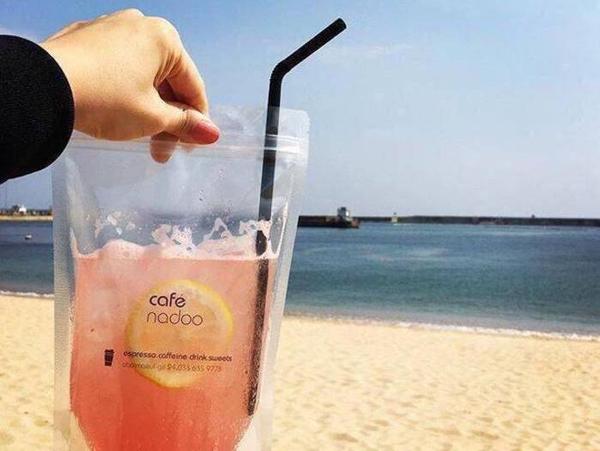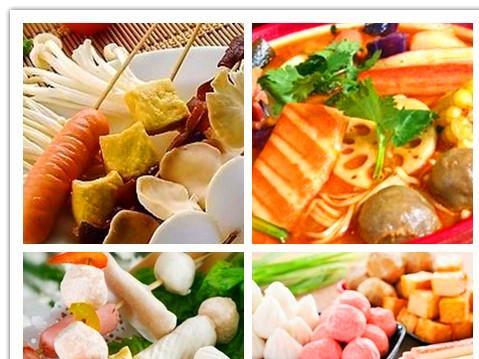People who drink wine are optimistic gamblers!

Recently, it has been rainy all over the country. Hunan has been hit by heavy rain. 540 villages and towns have experienced torrential rain and 122 villages and towns have torrential rain. Huangmei days in Shanghai should not only beware of heavy rain falling at any time, but also have to endure the torment of damp and muggy heat. It is said that mushrooms are growing on the bus. It's sour, and you can only understand it if you live in Shanghai. At this time, I am most worried about the wine collected at home. After all, I have also collected a lot of wine in recent years, and the preservation of wine in this weather will be a big problem.
With regard to the preservation of wine, we should first ask: why store wine? The answer is actually very simple: don't go bad, and be able to change over time, that's all! The first one needs to be satisfied before the subsequent transformation can be expected.
Don't go bad, of course it's not about people. However, if you buy more and drink more without restraint, you will inevitably get out of control. Alcohol can lead to sexual disorder, while sexual disorder can lead to all sorts of things. What do you mean, don't go bad? Natural aging is not called deterioration, whether it is people or wine. With the wisdom precipitated by the years, the accumulation of slow time will produce traces of breadth and depth in the brain or in the wine bottle. Only those who have gone through a lot of hardships can see the troubles of breaking through vulgar things; only after the wine has been aged in the cellar for a long time can it show the result of perfect fusion. Time is always an insurmountable factor, and we have no way to accelerate or stop its progress.
The deterioration of wine aged in an abnormal environment is actually very obvious.
Compared with high-alcohol distilled liquor, low-alcohol wine is a delicate and easy to deteriorate physique because of its low alcohol concentration and abundant nutrients. In the presence of oxygen, low alcohol content and appropriate temperature: miscellaneous bacteria in the air, especially acetic acid bacteria, will begin to multiply in large numbers, and low alcohol alcohol is the best nutrient for acetic acid bacteria. Acetic acid bacteria promote the oxidation of alcohol (ethanol) to acetaldehyde, a colorless but pungent liquid that destroys the original aroma of the wine (aromatic ester molecules such as the original fruit or the ripe aroma of the wine). If the time is longer, acetaldehyde will slowly oxidize into acetic acid, which has a more pungent taste and acidity, which will slowly disintegrate the wine which has lost its aroma.
As for the problem of discoloration, if it is a normally aged wine, the color change (red wine turns brown and lighter, liquor turns dark yellow or brown yellow) is inevitable, which is related to the transformation of pigments in the original wine. If a new bottle of wine has begun to change color, something may have gone wrong. Maybe the oxygen runs into the bottle (accelerated oxidation), or the wine is exposed to light, such as sunlight or long-term indoor lighting, allowing excessive ultraviolet radiation to stimulate the pigment or chemical activity in the original bottle.
No matter what causes the abnormal acidity or discoloration of the wine, it is a pity, because deterioration is an irreversible reaction. No matter what the original price is, bad wine has no value and meaning. When there is enough oxygen, the wine will go bad: temperature, light, vibration and humidity.
1, temperature
Temperature is divided into two conditions: temperature difference and high temperature.
If the temperature difference is not too severe, basically it will not have a great impact on the wine, unless such a change occurs in a very short period of time. However, there is no final conclusion as to how big the temperature difference or how long the wine will change. The condition of each wine (red, white, bubble, sweet, grape variety, brewing method, etc.) is different, and the limits that can be tolerated are also different. It is difficult to work out a general rule, which can only be judged by personal experience. In the environment of drastic temperature changes, people are easy to feel uncomfortable, and wine does not have the ability of self-regulation, so when storing or carrying, it is best to avoid excessive temperature changes in a short period of time. In addition, drastic temperature changes will have an impact on the traditional cork wine bottle, the air in the bottle is abnormal thermal expansion and cold shrinkage, which is easy to cause the condition of flushing the bottle, allowing air, miscellaneous bacteria and even too much moisture to enter, resulting in deterioration.
High temperature is the biggest killer that can really deal a fatal blow to wine. Simply put, high temperatures produce heat, which accelerates the reaction of the chemicals in the wine and makes the aromatic esters disappear. When the wine has gone bad and lost its aroma (this is an irreversible reaction), even if it is put back in the thermostat, there is no way to come back. Especially because of the temperature difference caused by cork bulge, let air and miscellaneous bacteria into the bottle, the wine may be acidified, so that the bottle of wine will be completely scrapped.
Temperature control is the most important key when storing wine!
In this hot summer, if you only put the wine in an ordinary room, the indoor temperature is likely to exceed 30 degrees during the day. If the air conditioner is turned on to cool down at night, the temperature difference between day and night and the excessive temperature during the day will affect the wine. The fresh fruit aroma slowly fades away and turns into the taste of warm boiled fruit.
As for the effect of low temperature on wine, the most likely condition is to slow down the transformation of wine. If you have no choice but to keep the wine in the refrigerator (usually 4 to 5 degrees), it can avoid the deterioration of the wine, but it is not good to keep it for a long time, so the temperature is not a good environment for the wine to grow. However, the effect of low temperature on wine body is much smaller than that of high temperature, unless it is almost frozen, the quality of wine stored at low temperature can basically be maintained. In a word, high temperature is the absolute killer of wine.
2, light
It has something to do with the temperature. Too much light will cause the temperature to rise. It is very simple, as long as you recall the sweaty memory of standing on the playground in the cool summer when I was a child, you can understand it. However, apart from the rise in temperature, the greatest impact of light on wine is ultraviolet radiation, whether outdoor (sunlight) or indoor (some lamps with ultraviolet rays). After long-term exposure, it will also cause harm to the quality of the wine.
Excessive or long-term light, through the action of radiation, accelerates the movement of various molecules in the wine, resulting in the disappearance of normal acidity, the transformation within the wine body in advance, heat caused by energy transfer, the death of aroma molecules, and the expansion of air in the bottle, resulting in air leakage, allowing oxygen and miscellaneous bacteria to run into the bottle, resulting in rancidity and over-oxidation.
Wine has its own ways to prevent the effect of light. Wineries usually use brown or green bottles to fill the wine and reduce exposure to too much light during transportation. For consumers, it is a good way to put the wine in a carton, wrap the bottle with paper, or store it more actively in the wine cabinet, and stick it on the glass door of the wine cabinet with opaque paper, and so on.
3, vibration
For experienced and beginner drinkers, there are usually no more than four ways to store wine: domestic compressor cabinets (cheap), foreign refrigerant circulation cabinets (no compressors, very expensive), renting seats to large wine merchants (paying monthly rent), or building a temperature-and humidity-controlled wine cellar at home (usually big boss level). No matter which way, is to have a so-called constant temperature, humidity, no light and will not shake the standard Huai environment to put their own good wine.
There are usually more people who buy domestic compressor wine cabinets because they are relatively cheap. However, some senior wine lovers believe that the vibration of the compressor will affect the growth of wine, which is not a good choice to store wine. In fact, a very small vibration, as long as it does not cause turbidity or even cavitation (that is, a temporary bubble vacuum caused by a very large sloshing in the liquid), usually does not have much effect on the wine, or basically does not exist. A small vibration will not cause a strong chemical change in the quality of the wine, and there are not enough experiments to prove that it will have a decisive effect on the transformation of the wine during storage.
Related
- A course of planting techniques and methods on how to grow carrots
- How to plant the latest tulips?
- Is it better to pick tea in the morning or in the afternoon? When is the best time for tea to be picked? what is the third or fifth tea?
- Launch Yuanxiao Happy combination Haocha + Tea Yuan healthy Taste
- Penghu Tourism "Fireworks 20 Parade with You"
- 2022 West Lake Happiness holds "Digital Revitalization Voucher" and draws iphone13 and laptop.
- Banqiao Fuzhou social houses are designed to change start-up combined with police elimination to create a safe and livable environment
- The convenient measure of "mechanical weeding" in Xinbei has been abused and the Agriculture Bureau has imposed heavy penalties on the illegal land consolidation.
- Changgeng University Joins Hands with Four Memory Factories to Rescue Memory Talent Shortage
- The list of Taiwan's top 100 MVP managers is listed by the Director-General of the Farmers' Association of Sanxia District.



